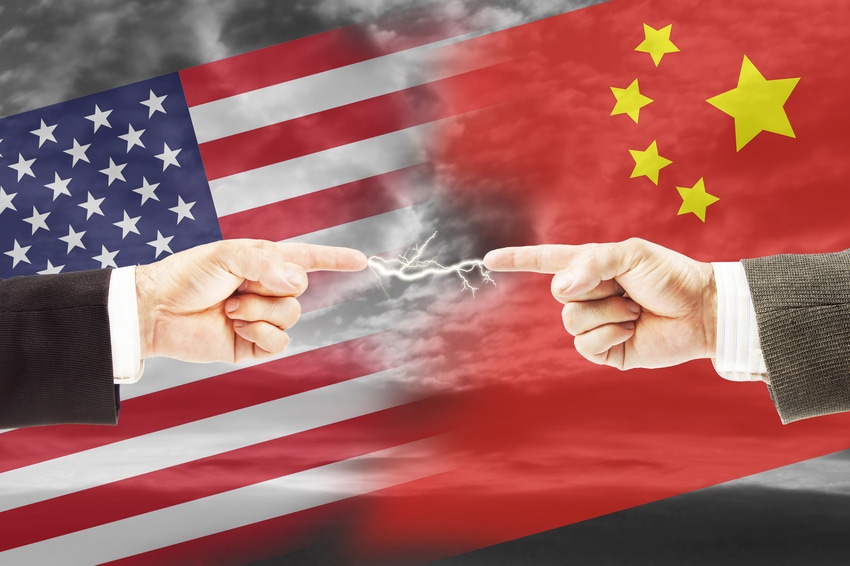Despite winning him a significant number of votes, if Trump starts a trade war with China it won’t be a happy ending for anyone involved.
November 14, 2016

Despite winning him a significant number of votes, if Trump starts a trade war with China it won’t be a happy ending for anyone involved.
Chinese newspaper the Global Times, which has been accused of having a pro-government stance, has set out a short and sharp warning to Trump and other supporters of 45% tariffs imposed on Chinese goods and services entering the US; screw China and China will screw you harder.
“China will take a tit-for-tat approach then. A batch of Boeing orders will be replaced by Airbus. US auto and iPhone sales in China will suffer a setback, and US soybean and maize imports will be halted. China can also limit the number of Chinese students studying in the US.” In short, tariff us and we will be tariffing you back hard and fast.
The protectionist policy employed by Trump throughout the election campaign would appear to be more than a political soundbite to attract interest from citizens consumed by national pride or those who have found themselves unprepared for globalization and the emergence of the digital economy. Speaking during an interview with Bloomberg, Judy Shelton, economic advisor to President Elect Trump, indicated the policy would be taken forward:
“He is someone going to carry through on what he says. He’s always very straight-forward and honest. I expect him to be consistent.”
Let’s assume the Chinese market isn’t crucial for the growth of American businesses for the moment, Trump is not necessarily stopping with the Chinese, they have just felt the sharpest end of the stick. A 35% tariff has been proposed for other nations also.
Like the Chinese, Korea, India, Japan, the EU, the UK, etc. are unlikely to take these tariffs lying down should the situation arise. Trump must have immense confidence in the strength of the US domestic market if it is to replace trade potential lost to these nations through tariffs.
Risk to technology industry
One of the biggest risks will be for the technology industry, not so much on the consumer side of things however. Sure, iPhone sales may suffer for a lack of international opportunity, however tariffs placed on foreign businesses could create a gap in the market for new US brands to enter the fold. Just because wallets are being squeezed a bit at the moment doesn’t mean the millennials are going to go that long without replacing their smartphones.
The risk here will be undertaken by companies like Dell Technologies, VMWare, Intel, IBM etc. who are only looking internationally for growth. The US market is stagnant; new projects and customers are coming from the likes of China, India, South America and Eastern Europe, the very countries Trump is sizing up for a trade war. The US has a lot more to lose than the rest of the world.
In a list of the top 20 US exporters for 2015, Apple, Qualcomm, Intel and Cisco Systems represent the technology world; only Oil & Gas has a higher number of representatives. Electronic equipment also represented $163.1 billion of outgoing international trade, an increase of 36.9% since 2011, and 11.3% of the total export of US industry last year.
Risk to the Rest of the World
Aside from the obvious risk to the US economy, China Topix points out there could be a significant risk to numerous other nations, as well as the possibility of a worldwide recession should a trade war escalate.
A slowdown in China could see the country spending less internationally. The immediate ripples would be felt in countries like South Korea, Japan, and Brazil, where China is the biggest market for exports. Ripples would be felt further and it would only be a matter of time before they hit the US again. Trump could reverse years of progress achieved through free-trade and set into motion a downward spiral. It’s very doom and gloom, but a realistic possibility.
“For many countries around the world, China is now the biggest trading partner, so this kind of tit-for-tat trade protectionism with China will dampen the atmosphere for the international trading community,” said Yorizumi Watanabe, Economics Professor at Japan’s Keio University.
An escalating trade war is certainly a long-way off however it is becoming a distinct possibility. Before Trump angers the rest of the world, he and his administration would have to negotiate around other politicians, as well as an army of lobbyists who are unlikely to be thrilled by such an idea as pissing off the Chinese.
All-in-all, protectionism is a simple policy to attract interest from some of the more short-sighted demographics in the electorate. If the US policy continues down this route it’s unlikely to be good news for anyone. Despite it being a long way off and there being significant hurdles in the way, if there was one person who is determined enough to do it, America has found him.
About the Author(s)
You May Also Like








.png?width=300&auto=webp&quality=80&disable=upscale)


_1.jpg?width=300&auto=webp&quality=80&disable=upscale)


.png?width=800&auto=webp&quality=80&disable=upscale)